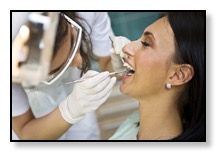
It is an extraordinary dedication to the art and science of dentistry that prompts dentists to advance their training to the level of a neuromuscular specialty, and Dr. Tsai is one of those rare doctors. Her training in NMD enables her to look beyond the obvious to the deeper causes of head and neck symptoms, and effectively treat a variety of problems in these areas, including temporomandibular joint disorder (popularly known as TMJ or TMD). This is a common disorder in which the temporomandibular joint -- which connects the jaw to the skull -- is inflamed, damaged, or strained. TMJ can also be called TMD (temporomandibular joint disorder) or MPD (myofascial pain dysfunction). But all of these terms mean basically the same thing, a collection of symptoms that includes but is not limited to the following:
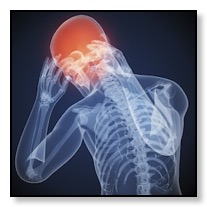
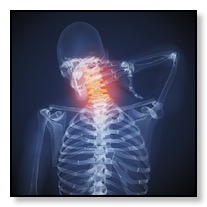
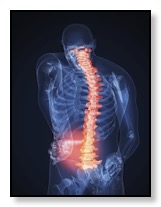
» Headaches
» Clenching or grinding teeth
» Limited mouth opening, jaw joint pain, jaw joint clicking
» Back, neck, or shoulder pain
» Ear congestion
» Dizziness or vertigo
» Ringing in the ears
» Loose teeth or sensitive teeth
» Facial Pain
» Tingling of fingertips
» Nervousness
» Imbalanced head or neck posture issues
» Insomnia
» Swelling
» Difficulty closing the mouth or chewing
» Irregular bite
» Difficulty swallowing
It is estimated that more than 10 million people in the United States have experienced TMJ problems. Even if you're not experiencing pain or other symptoms, neuromuscular dentistry plays an important role in aesthetic, cosmetic or reconstructive dentistry. It is also an essential element in orthodontic treatments and determining the correct occlusion for dentures.
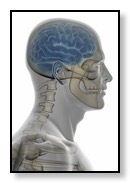
These symptoms are not always easy to diagnose because they're similar to symptoms that might suggest other disorders. Dr. Tsai will begin her evaluation by determining if your symptoms are chronic (constantly present) or acute (showing up suddenly with great intensity), or if they are the result of trauma, infection, or other medical causes. Dr. Tsai uses state-of-the-art computer technologies to help her arrive at a diagnosis. Some of these technologies include a test that measures jaw and muscle movement using an electromyography device similar to the ECG/EKG that doctors use to diagnose heart problems. Other methods use ultrasound technology to detect any clicking or popping sounds made by the jaw, and magnetic jaw tracking to characterize the position of your jaw as it opens and closes. These methods help Dr. Tsai determine the severity of the problem and choose an appropriate treatment.
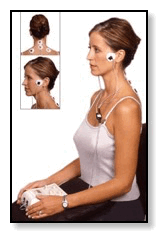
These electrical impulses increase blood flow to the target areas and promote muscle relaxation. After a short period of time, your jaw, shoulder, and neck muscles will be relaxed and ready for assessment.
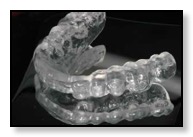
Here is a quick video that explains the neuromuscular approach to TMJ / TMD pain.
Neuromuscular dentistry takes a holistic approach to dental care: looking at bone and tooth position as well as skeletal muscle interaction. Dr. Tsai is one of the rare breed of dentists who has trained extensively to address TMJ / TMD pain via neuromuscular dentistry in her practice. With this specialized training, she is able to help patients find solutions to a wide range of cosmetic, reconstructive, and routine dental care issues. Please feel free to call Dr. Tsai and her team to discuss your particular symptoms or questions at (650) 583-5880.
For more about Dr. Tsai’s training and experience, please click here.
Click here for more information on TMJ TMD symptoms
Want to set up a TMJ evaluation?
email or call to set up an appointment: (650)-583-5880
📩
Send us Email
📅
Request Appointment